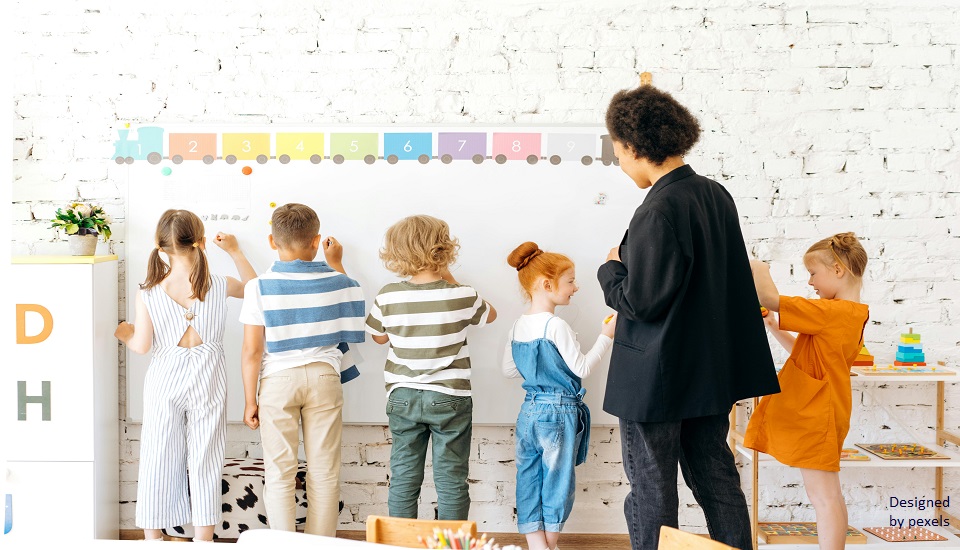How Can Students Benefit With Collaboration Among Parents And Teachers?
1st October 2024

Getting feedback from a range of stakeholders teachers, experts, and parents, is crucial to this partnership to guarantee a thorough grasp of the student's behavioral and academic performance. Read on to learn how using input forms as useful tools to promote IEP team communication will be discussed in this blog article. You will also understand the kinds of data that need to be included on these forms and give examples to highlight their importance in developing effective IEPs.
What Is The Link Between Individualised Education Program And Federal Law?
Parents should be encouraged to be active participants in their children's decision-making process and must be given a real and authentic chance to do so, according to the federal Individuals with Disabilities Education Act (IDEA).
Throughout actuality, the terms ‘parents and ‘parentally’ occur throughout the statute more than 350 times. Informed permission for exams, sharing important information about their kid, and co-writing the IEP are just a few ways parents and teachers may work together. However, parents frequently don't feel truly included, and instructors sometimes believe parents get in the way of their work.
Before you move to the topic, can we ask you a quick question? Do you follow us on Social Media? If not, then you’re missing out on a lot of informative content. We regularly share upgraded educational content, tips, feedback, and more. Check us out by clicking the profiles here - Facebook / Twitter / LinkedIn / Pinterest / Instagram / YouTube
How Can Teachers Improve Collaboration?
Here are a few ways teachers can improve collaboration among their students and keep them engaged:
1. Be Mindful Of Knowledge
In addition to your subject areas of expertise, as teachers you are also well-versed in the special education regulations and procedures of your districts. It is quite difficult to recall what it was like to not know something when we are well-versed in it. It is quite difficult to recall what it was like to not know something when you are well-versed in it.
It is easy for you to unintentionally assume the worst regarding parent comprehension, particularly when using phrases like ‘least restrictive environment,’ ‘severe discrepancy,’ and ‘negative educational impact.’ Make sure you clarify any phrases that could be unclear and stick to terminology that all parents can comprehend.
2. Be Cautious With Your Advice
If you try to help a parent and it doesn't work, you could lose their respect and trust. You also run the danger of the parent being reliant on you when they should be given more authority, even if the advice proves to be effective.
After all, this is their child. Provide knowledge from several sources instead of counsel, and enable the parent to feel secure enough to make decisions regarding their kid while still giving them the necessary support.
3. Create Paper-based IEP Forms
Teachers, parents, and experts are among the pertinent parties participating in the IEP process who frequently receive printed copies of these documents. Typically, these forms have areas for tracking behavioral observations, academic performance, demographic data, and other pertinent information.
Paper-based input forms are a practical means of gathering data and are simple for team members to distribute during IEP sessions.
How Can Parents Help Improve Collaboration?
Here is how parents can help in collaborative efforts so that their child learns better:
1. Exercise Your Right To Participate
The majority of educators were pleased when parents participated, inquired, and maintained interest. When they see that parents aren't actively involved in their child's IEP process, it frustrates them.
They wanted parents to be involved, but they weren't always as proactive as they could have been in asking them to work on developing an IEP or coming up with ideas for strategies outside of the IEP table. They would have been thrilled if a parent had made the first move and suggested that they collaborate to think through the content of the IEP.
2. Don’t Get Too Involved In The Process
Avoid micromanaging the procedure by keeping track of deadlines, scrutinizing the credentials of assessors, and doubting the accuracy of the evaluations or interventions—all of which are things I have witnessed occur. Once more, have faith that the experts working with your child are exactly that professionals unless you have specific grounds to think otherwise.
Not only for your child but for every child they are responsible for, they know what to do and how to do it. Although, understandably, your child is your top concern every day, instructors too have a large student body to attend to and occasionally must make decisions based on urgency.
Collaborative Efforts Yield Better Results
If you are a teacher who has pursued a Bachelor of Education in Special Educational Needs you can play a pivotal role in facilitating collaboration. Successful collaborative methods can give the child's closest caregivers a solid platform on which to establish a relationship that will support the child's achievement, but they won't suddenly remove the child's impairment or end any possible conflicts.
We believe education should be accessible for everyone. That’s why we don’t charge for our blogs. Find the right course that will help you in your career with us, contact us at - 1800–212–6400. You can mail us at act@asiancollegeofteachers.com.








